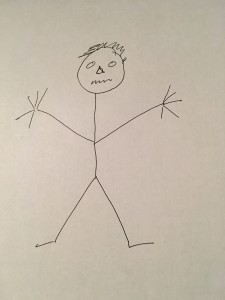It’s much easier to write a loathsome, evil, rude and mean character than it is to write someone that is simply unlikeable. The basically nice, but annoying neighbor; the fussy, humorless office manager who gets the job done, but is boring in social settings; and the charm-free man with a hopeless crush who simply tries to hard, are everywhere. You’ll find them at work, at school, at the gym, at a bar, in government…
The elements that make someone unlikeable in life are hard to recreate in fiction, because they lack drama. The unlikeable wind up as foils or pawns in the hands of the evil (powerful, demanding, or controlling) characters—think Renfield in ‘Dracula.’ He’s so unlikeable that he’s uncomfortable, but he serves his master well.
I’m not confusing loveable nerds with unlikeable characters. Awkward, silly, unfashionable and clueless nerds may not be LIKED, but they are likeable. In fiction, they often morph into heroes or ‘objects of desire.’ All the Cinderella transformation of a nerdy girl into the prom queen princess requires is a great dress, a new hairstyle and a lesson in confidence. The nerdy boy needs the attention or admiration of a popular girl, for his metamorphosis. Unlike-ability is harder to cure, because it’s not cosmetic.
Once, many years ago, I did something terrible when I was avoiding an unlikeable boy in my college dorm. He lived down the hall and he had a crush on me. We had one class in common and he used this as an excuse to “drop by.” He was legally blind—a fact that was not an issue for me. It was his clueless and desperation to be liked that made me itch.
At the time I was painfully shy and empathized with his attempts to be more popular, but that didn’t stop me from being annoyed when he overstayed his welcome and didn’t pick up on the social cues indicating it was time to go. I was never sure if he willfully stayed when my sort-of-boyfriend arrived, or if he were actually clueless.
One evening, he knocked on the door and entered. My roommate signaled me to be perfectly still. She’d decided that if he didn’t see me move, he wouldn’t see me at all from his spot by the door. I held my breath and felt terribly guilty when she lied to him and said I was out. I had not asked her to do this, but I was still complicit and felt dreadful. I was expecting a visit from the sort-of-boyfriend—he arrived a bit later.
Years later, examining his brand of unlike-ability, I can’t say whether his discomfort was caused by his visual impairment and/or an underlying neurological issue. He may not have been capable of interpreting social cues. Whatever the cause, he was unlikeable—and a difficult character in fiction.





